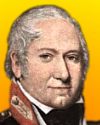
On 3 Jun 1761 was born an Englishman (see quiz below) who joined the Royal Artillery shortly after his 18th birthday, and spent his life in service. He invented a percussion lock for small arms, which he patented in 1834, and made other improvements in fuses, ammunition, small arms and the sighting of guns.
Perhaps his greatest invention, which he refined over a number of years, until the authorities finally accepted it, was a shell with a spherical case containing small lead musket balls - designed to explode in flight to injure enemy soldiers over a wide area.
Some background on his invention and its later developments by others can be found in an article reprinted from the Journal of the Royal Artillery (Jan 1920).

On 3 Jun 1726, James Hutton, a Scottish geologist was born, who founded modern geology. He flourished during the Scottish enlightenment and looked to the ground rather than holy writ for clues about the age of our planet. Today's book pick is: The Man Who Found Time: James Hutton And The Discovery Of Earth's Antiquity, by Jack Repcheck, whose writing is fluidly informative, and will easily capture the attention of readers of popular science. Repcheck weaves together the many historical threads that led to Hutton's theory - a paradigm shift in the conception of geological history - that the earth was shaped not by a cataclysmic Great Flood, but rather by the inexorable forces of wind and rain, tides and storms, volcanoes and earthquakes over a far longer period than the 6,000 years biblical scholars said was the planet's age.
It is available from Amazon, typically about New from $14.98. Used from $3.85. (As of earlier time of writing - subject to change.)
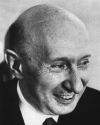 | One way of dealing with errors is to have friends who are willing to spend the time necessary to carry out a critical examination of the experimental design beforehand and the results after the experiments have been completed. An even better way is to have an enemy. An enemy is willing to devote a vast amount of time and brain power to ferreting out errors both large and small, and this without any compensation. The trouble is that really capable enemies are scarce; most of them are only ordinary. Another trouble with enemies is that they sometimes develop into friends and lose a great deal of their zeal. It was in this way the writer lost his three best enemies. Everyone, not just scientists, needs a good few enemies. |
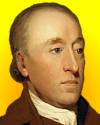 | Man is made for science; he reasons from effects to causes, and from causes to effects; but he does not always reason without error. In reasoning, therefore, from appearances which are particular, care must be taken how we generalize; we should be cautious not to attribute to nature, laws which may perhaps be only of our own invention. |
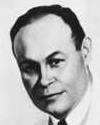 | I feel that the recent ruling of the United States Army and Navy regarding the refusal of colored blood donors is an indefensible one from any point of view. As you know, there is no scientific basis for the separation of the bloods of different races except on the basis of the individual blood types or groups. (1942) |
| Before you look at today's web page, see if you can answer some of these questions about the events that happened on this day. Some of the names are very familiar. Others will likely stump you. Tickle your curiosity with these questions, then check your answers on today's web page. | |
| Births | |
 | Charles Richard Drew, born 3 June 1904 was a Black American physician and surgeon who was an authority on human blood. What was his important contribution? |
 | On 3 June 1761, an English army general was born who invented an anti-personnel shell. The projectiles contained small shot or spherical bullets, usually of lead, along with an explosive charge to scatter the shot as well as fragments of the shell casing. The resulting hail of high-velocity debris would cause multiple casualties, or death. Can you name this man? |
| Deaths | |
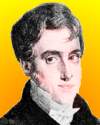 | Nicolas-François Appert (c.1750-1841) was a French chef, confectioner, and distiller. What did he invent that is still is use today? |
 | William Harvey (1578-1657) was an English physician who was also an expert on an aspect of human blood. Harvey's courage, penetrating intelligence, and precise methods were to set the pattern for research in biology and other sciences for succeeding generations, so that he shares with William Gilbert, investigator of the magnet, the credit for initiating accurate experimental research throughout the world. What was his discovery about blood in the human body? |
| Events | |
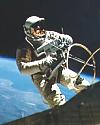 | On 3 Jun 1965, the first American astronaut to make a spacewalk was Major Edward White II. He was launched into space, and the same day, spent time outside the Gemini 4 capsule during Earth orbit at an altitude of 120 miles. A tether and 25 foot airline were wrapped in gold tape to form a single, thick cord. He used a hand-held 7.5 pound oxygen jet propulsion gun to maneuver. Soviet cosmonaut Aleksei A. Leonov, had made the first ever spacewalk for 10 minutes about three months earlier. To the nearest ten minutes, how long was the American first spacewalk? |
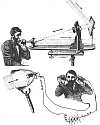 | On 3 Jun of a certain year, the first wireless telephone message was transmitted by light. The voice vibrations could be reconstructed back into sound at the receiving end of the projection. In this way the device functioned similarly to the telephone; the difference was that the device used light as a means for projecting the information, while the telephone used electricity. In what decade was this message transmitted by light? |
| no image | On 3 Jun 1948, a 200-inch (5.08 m) U.S. reflecting telescope was dedicated. This was the first in the world with a 200-inch lens, which after casting was permitted to cool slowly over an 11 month period. The resulting 20-ton glass disk then required 11 years of careful grinding and polishing. The telescope was officially named after the astronomer who conceived, designed and promoted this telescope, though he died before it was completed. Can you name this telescope? |
Fast answers for the previous newsletter for June 2: lead • vanadium • Panama Canal • Principia by Isaac Newton • the decade including the year 1896 • Thomas Watson.
 If you enjoy this newsletter, the website, or wish to offer encouragement or ideas, please send feedback by using your mail reader Reply button.
If you enjoy this newsletter, the website, or wish to offer encouragement or ideas, please send feedback by using your mail reader Reply button. Your click on a Facebook, StumbleUpon, or other social button on the site webpages is also a welcome sign of appreciation. Thank you for using them.
© This newsletter is copyright 2020 by todayinsci.com. Please respect the Webmaster's wishes and do not put copies online of the Newsletter — or any Today in Science History webpage. (If you already have done so, please remove them. Thank you.) Offline use in education is encouraged such as a printout on a bulletin board, or projected for classroom viewing. Online, descriptive links to our pages are welcomed, as these will provide a reader with the most recent revisions, additions and/or corrections of a webpage. For any other copyright questions, please contact the Webmaster by using your mail reader Reply button.
--
If you do not want to receive any more newsletters, Unsubscribe
To update your preferences and to unsubscribe visit this link
Executive Real Estate Business Class
-
"It was like a man with wings. It wasn't like anything you'd see on TV or in a monster movie." ...
About the publisher
Search This Blog
Blog Archive
-
▼
2021
(585)
-
▼
June
(64)
- On This Day for June 30 - Night of the Long Knives...
- Newsletter for Wednesday 30 June.
- On This Day for June 29 - London's Globe Theatre d...
- Newsletter for Tuesday 29 June.
- On This Day for June 28 - Assassination of Archduk...
- Newsletter for Monday 28 June.
- On This Day for June 27 - Yen made official moneta...
- Newsletter for Sunday 27 June.
- On This Day for June 26 - Opening of CN Tower, Bab...
- Newsletter for Saturday 26 June.
- On This Day for June 25 - Korean War begun, Antoni...
- Newsletter for Friday 25 June.
- On This Day for June 24 - Russia invaded by Napole...
- Newsletter for Thursday 24 June.
- On This Day for June 23 - Battle of Bannockburn, C...
- Newsletter for Wednesday 23 June.
- On This Day for June 22 - Mutiny against Henry Hud...
- Newsletter for Tuesday 22 June.
- On This Day for June 21 - Japanese forces defeated...
- Newsletter for Monday 21 June.
- On This Day for June 20 - Casket Letters found, Ho...
- Newsletter for Sunday 20 June.
- Tonight at 8/7c: Watch ‘Fight the Power’
- On This Day for June 19 - Rosenbergs executed for ...
- Newsletter for Saturday 19 June.
- On This Day for June 18 - War of 1812 begun, Sir P...
- Newsletter for Friday 18 June.
- On This Day for June 17 - Arrest of O.J. Simpson, ...
- Newsletter for Thursday 17 June.
- On This Day for June 16 - First woman in space, Jo...
- Newsletter for Wednesday 16 June.
- On This Day for June 15 - Magna Carta sealed by Ki...
- Newsletter for Tuesday 15 June.
- On This Day for June 14 - First prisoners at Ausch...
- Newsletter for Monday 14 June.
- On This Day for June 13 - Historic meeting between...
- Newsletter for Sunday 13 June.
- On This Day for June 12 - Election of Boris Yeltsi...
- Newsletter for Saturday 12 June.
- Listen Now! Blindspot: Tulsa Burning Podcast
- On This Day for June 11 - Oklahoma City bomber exe...
- Newsletter for Friday 11 June.
- On This Day for June 10 - First “witch” hanged in ...
- Newsletter for Thursday 10 June.
- On This Day for June 9 - Landslide reelection vict...
- Newsletter for Wednesday 9 June.
- On This Day for June 8 - Michelangelo's David inst...
- Newsletter for Tuesday 8 June.
- Action required: Update your HistoryExtra password
- On This Day for June 7 - Lateran Treaty ratified, ...
- Newsletter for Monday 7 June.
- On This Day for June 6 - Normandy Invasion begun, ...
- Newsletter for Sunday 6 June.
- On This Day for June 5 - Start of the Six-Day War,...
- Newsletter for Saturday 5 June.
- On This Day for June 4 - Dunkirk evacuation ended,...
- Newsletter for Friday 4 June.
- Tonight: ‘Alone’ Returns at 9:30/8:30c
- On This Day for June 3 - Pro-democracy protest in ...
- Newsletter for Thursday 3 June.
- On This Day for June 2 - Elizabeth II crowned quee...
- Newsletter for Wednesday 2 June.
- On This Day for June 1 - Debut of CNN, Morgan Free...
- Newsletter for Tuesday 1 June.
-
▼
June
(64)
-
Blogroll
-
About
HistoryFact










0 comments:
Post a Comment